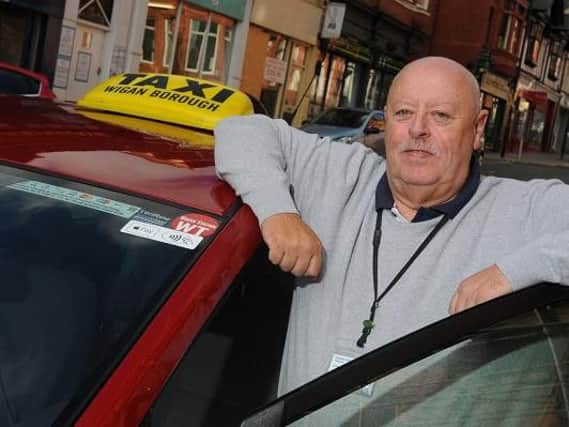Most of Wigan taxis not disability friendly


A study carried out by Muscular Dystrophy UK into both hackney carriages and private hire vehicles in the borough, highlighted a huge gap in Wigan’s accessible services, only 37 per cent of which are classed as “accessible”.
The term means vehicles are adapted to serve those with disabilities and may include a ramp, safety straps to secure a wheelchair or other modifications.
Advertisement
Hide AdAdvertisement
Hide AdDespite the introduction of a new law last year, designed to protect disabled passengers from being overcharged, Wigan Council has not yet made the right preparations and the regulations are not in place, the charity said.
Wiganers are not yet covered by the so-called Section 167 list, which is needed to hold all taxi drivers to account if they discriminate against disabled passengers.
A change in the Equality Act enacted in April last year means that taxi drivers would face a fine of up to £1,000 if they refuse to transport wheelchair users or attempt to charge them extra.
But the rules only apply to vehicles listed on Section 167 lists, which councils need to create. The town hall still has not done so despite a government-recommended deadline of October 2017.
Advertisement
Hide AdAdvertisement
Hide AdEddie Earley, founder of the RMT Wigan North Western trade union branch and representative for the borough’s hackney carriage drivers, has defended the drivers, saying that many of the black cabs are accessible despite not being listed as such.
“There’s always a black cab waiting to get someone in with a wheelchair,” he said. “I can assure people that there are enough black cabs.
“The problem is quite often elderly people do not want to get in black cabs. We have a mixed fleet, we also have the partner cabs where people can go in through the back door and the cabs with the side-lifting door, which are not classed as accessible but they actually are.”
Mr Earley stressed that hackney cab drivers would not turn down a disabled passenger and that they are held much more accountable than private hire vehicles, which “only answer to their company”.
Advertisement
Hide AdAdvertisement
Hide Ad“They will turn up in an estate car and then just drive off,” he said. “We would be reported for that.”
He was anxious to stress the difference between Hackney carriages – which can be flagged down – and private hire vehicles which have to be pre-booked.
Wigan’s provision for accessible taxis falls well below the UK average of 58 per cent and even further below several Greater Manchester authorities including Bury, Manchester, Salford and Stockport which have 100 per cent.
But Julie Middlehurst, group manager for regulatory services at Wigan Council, said: “Although we do not require all of our hackney carriage vehicles to be wheelchair accessible vehicles (WAV) an independent report on hackney carriages in 2016 reported that we have a very high percentage of WAV compared to other authorities.
Advertisement
Hide AdAdvertisement
Hide Ad“We also have a significant number of private hire vehicles which are wheelchair accessible.
“All our drivers are required to attend training in relation to disability awareness and customer service, to ensure that they are aware of the requirements under the Equality Act.
“Our training also covers autism and dementia.
“We receive a very small number of complaints in relation to this issue, and sanctions have been imposed in the past where a driver has not provided assistance. We always provide assistance and signpost any enquiries to the relevant vehicle owner or operator who can meet the needs of the user.
“The Equality Act states that we may maintain a list of such vehicles, and we intend to produce one in due course.
Advertisement
Hide AdAdvertisement
Hide Ad“A Greater Manchester Hackney Carriage and Private Hire Licensing Policy is being developed to ensure a consistent minimum standard across the region. One of the aims in Wigan borough is to encourage the increase in the number of wheelchair accessible and purpose built vehicles.”
The charity is now calling for the Department for Transport to make the Section 167 list mandatory.